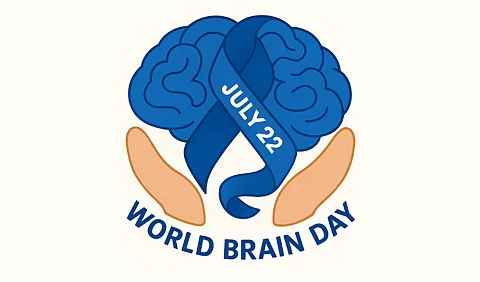World Brain Day, observed on July 22, emphasizes the need to recognize early signs of brain-related conditions particularly brain tumors, which often masquerade as common stress or fatigue.
This initiative is led by World Federation of Neurology which aims to raise awareness, educate and prevent neurological disorders.
For World Brain Day 2025, the theme “Brain Health for All Ages” highlights the importance of lifelong brain health. Supported by 125 national neurological societies, the initiative highlights the urgent need for education, early intervention, access to care, and advocacy. Aligned with WHO’s mission, it emphasizes that many neurological disabilities can be prevented, treated, or managed with proper care, benefiting individuals at every stage of life.
The campaign aligns with the WHO’s Intersectoral Global Action Plan (IGAP) for epilepsy and other neurological disorders and the UN Sustainable Development Goals, placing brain health as a global priority.
While occasional tiredness or forgetfulness may seem harmless, persistent or unusual symptoms could signal more serious neurological concerns.


